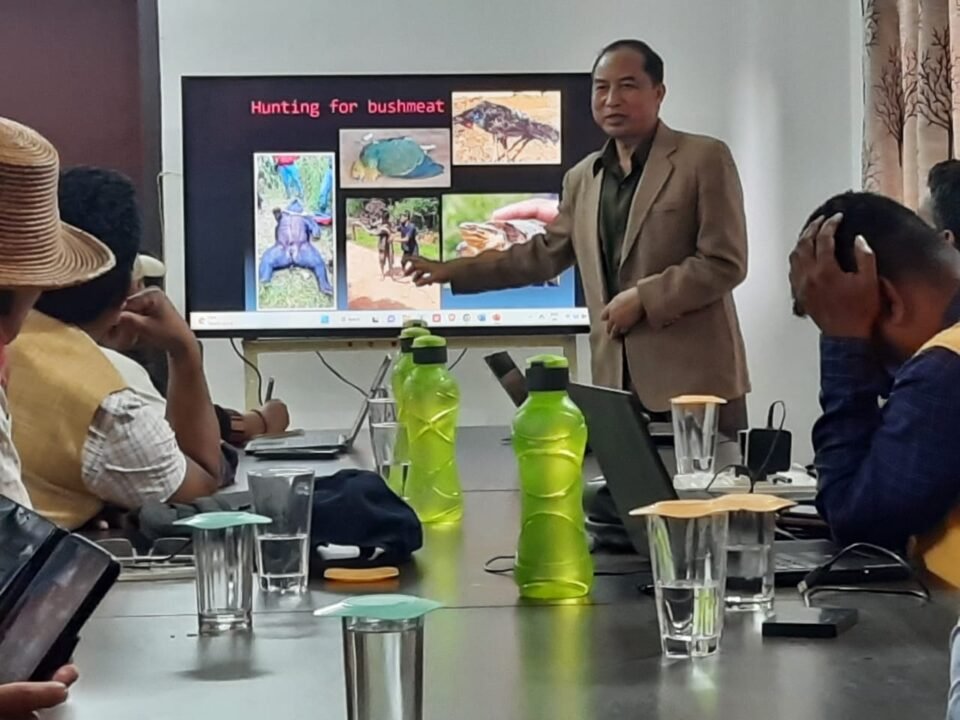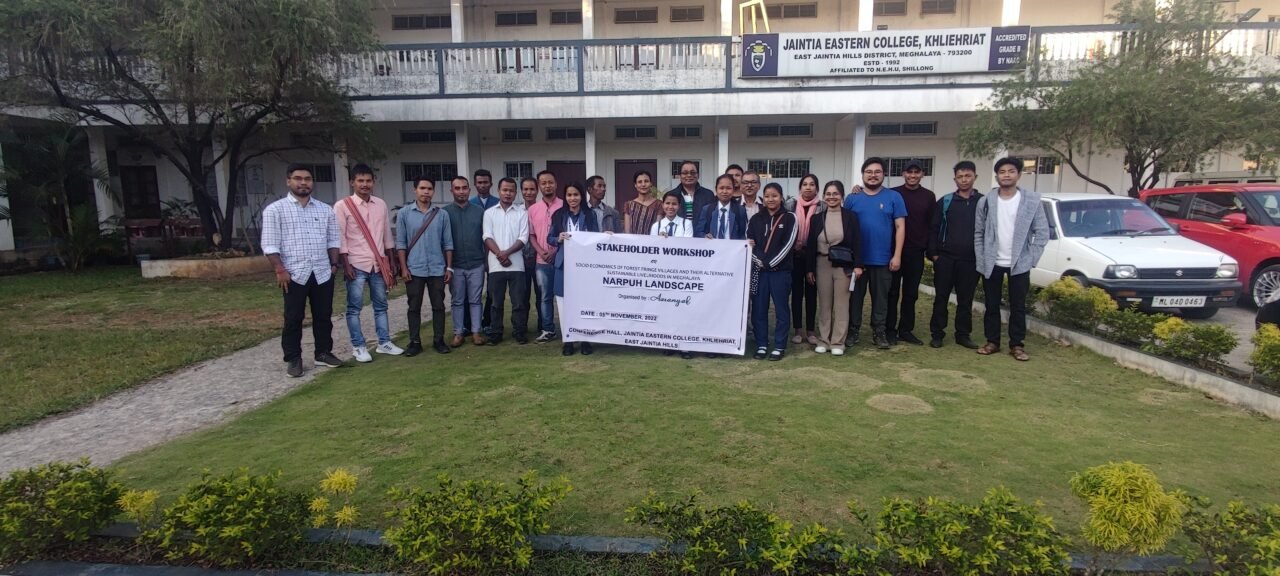CSMTs will also create livelihood options for the fringe area community to reduce the tribal people’s dependence on the protected forest areas
HT Bureau
Guwahati, Jan 11: Wildlife crimes like poaching and trading in wildlife are considered major threats to the efforts for conservation of species and habitats across the globe. It has been well documented that without proactive cooperation and support from the community, poaching of wildlife and trade in wildlife can’t be checked effectively.
Community support in conservation and wildlife and checking of wildlife crimes especially poaching is most relevant in Northeast India which is considered very rich in biodiversity and where overall demography is dominated by diverse tribes, some of which traditionally hunt wild animals for various purposes oblivious of the Wildlife (Protection) Act in vogue.
In this backdrop, the Legal and Advocacy Division (LAD) of Aaranyak has chalked out a pilot strategy to set up Community Surveillance and Monitoring Teams (CSMTs) to facilitate community participation in conservation process as well as wildlife crime prevention in and around Daying Ering Memorial Wildlife Sanctuary near Pasighat in East Siang District of Arunachal Pradesh.
D’Ering WLS sanctuary is a rich biodiversity area where wildlife policing has been a major problem because of lack of adequate forest staff and infrastructure inside the sanctuary where the vast grassland harbours a large number of bird species and is home to varied species of animals like Asiatic Buffalo, hog deer, barking deer, sambar, hispid hare etc. The sanctuary forms part of the D’Ering-Dibru Saikhowa elephant corridor.
Similar, CSMTs are being set up in Tamenglong district of Manipur to mount community vigil against wildlife crime and create synergised actions involving community and Government agencies like forest and State police.
The CSMTs in addition to contributing towards prevention of wildlife crimes, will also explore creation of livelihood options for the fringe area community to reduce the tribal people’s dependence on the protected forest areas concerned and engage them in conservation efforts.
In order to work out a modalities for setting up the CSMTs and their membership compositions, Aaranyak organised a workshop at its research office here recently to interact with two delegations of forest officials, community leaders and conservation workers from D’Ering WLS areas at Pasighat in Arunachal Pradesh and a few conservation workers working in community forest conservation work in Tamenglong district in Manipur where too wildlife crime is a major hurdle in conservation efforts because of lackadaisical implementation WL (Protection) Act and lack of synergy between the State forest and police forces.
The DFO of D’Ering WLS, Tasang Taga during the interaction underlined the urgent need to involve the community in prevention of poaching and other wildlife crimes occurring in and around the WLS.
A conservation leader from Manipur, Salam Rajesh suggested that efforts for CSMTs formation should be approached district by district in Manipur and it should be started with Tamenglong district where the community has been already doing some good job in conservation of biodiversity on their own.
The LAD team of Aaranyak led by acclaimed conservation scientist and secretary general-cum-CEO of Aaranyak, Dr Bibhab Kumar Talukdar briefed the teams from Arunachal Pradesh and Manipur on the global wildlife crime scenario and the alarming situation in the frontier NE India region and highlighted how CSMTs can help check wildlife crimes in the region.







